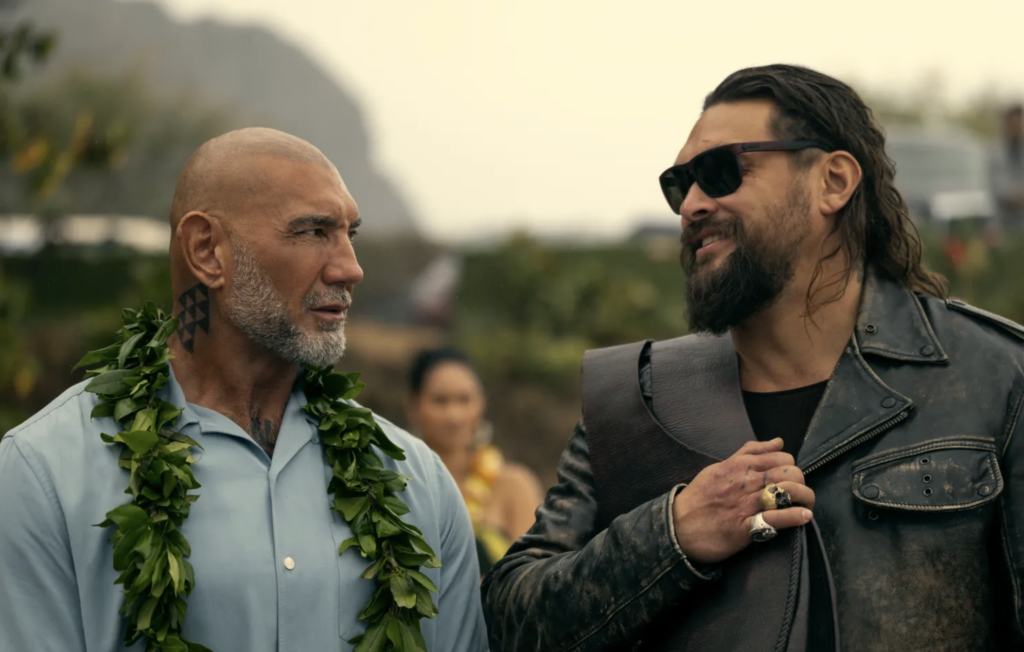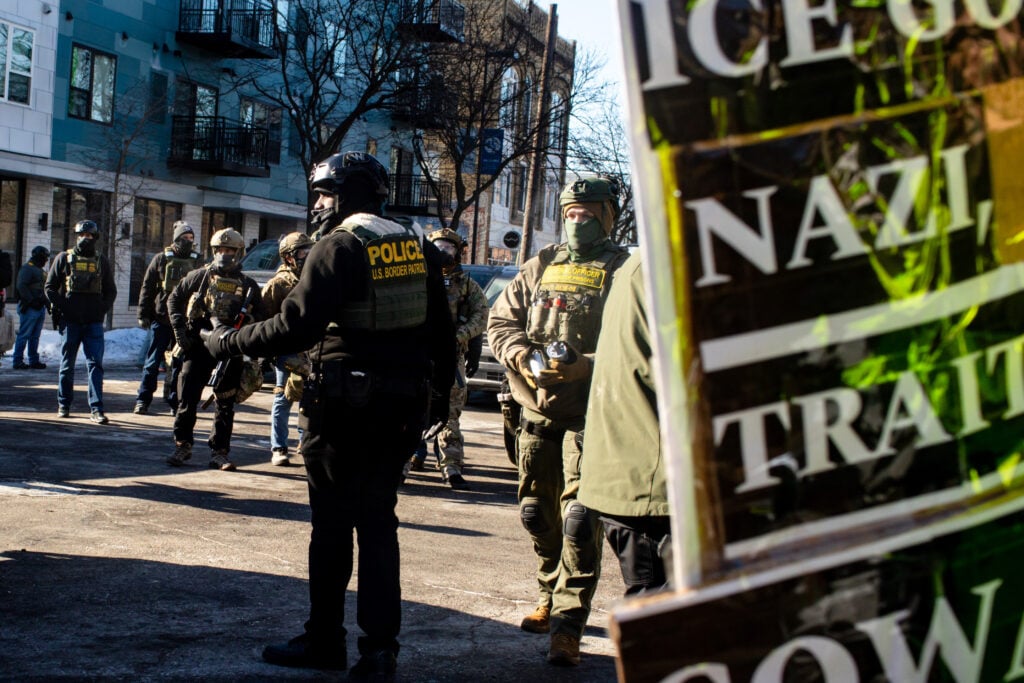National Anthems
At the Gem Theatre on January 17, the Kansas City Jazz Ambassadors hosted a panel discussion on the topic “Music After 9/11.” The timing seemed a little odd — after all, most of the dire predictions made in the immediate aftermath of the terrorist attacks didn’t come true. People do care about fluffy escapist entertainment again, as evidenced by the huge viewing audiences for Britney Spears’ and Michael Jackson’s televised performances and by the mammoth box office figures for Lord of the Rings and Harry Potter. After a few enormous concerts and not-for-profit compilation discs, celebrity efforts have come to a halt. Some stars undoubtedly continue to make financial contributions to relief organizations, but the last of their immediate-aid projects, the ones that might be material for an organized discussion, took place months ago.
But if anything, it might be too soon to assess September 11’s effects on the music world. As moderator and Kansas City Star columnist Steve Penn noted, audiences have been seeking songs that address freedom, choice and change. However, most of the tunes they’re asking for come from another era and address struggles the nation faced at the time they were written, such as segregation and the Vietnam war. Crafting a built-to-endure protest anthem takes time, and though Paul McCartney and Neil Young can’t be faulted for moving quickly to put together topical material for benefit shows, their hastily-assembled tunes aren’t strong enough to have staying power.
In the next year or so, musicians who were moved by the events of September 11 will have time to reflect, mine their still-settling emotional cores and perhaps deliver the type of poignant, mass-appeal patriotic standards that post-hippie generations lack. Look at the startlingly inappropriate songs used to fill that void at last year’s Independence Day fireworks show at Lee Park: “American Woman,” an anti-American diatribe written by a Canadian band; “Born in the U.S.A.,” Bruce Springsteen‘s bitter-ex-vet lament; and “Freedom ’90,” George Michael‘s snippy salvo at “the boys at MTV.” Or sample the makeshift measures that currently provide the soundtrack for 9/11 footage: Ryan Adams‘ “New York, New York,” which uses the city as a metaphor for a jilting lover; and Enya‘s “Only Time,” which was written for, well, whatever reason Enya writes songs.
So far, the most powerful post-attacks musical message comes from Wu-Tang Clan‘s Ghostface Killah, who, on a track from the New York-based collective’s new Iron Flag, demands to know Who the fuck knocked our buildings down?/Who’s the man behind the World Trade massacres, step up now. His voice is panicked, his tone trembling, his rage unmistakable. Due to its esoteric appeal and occasional profanity, the song won’t become a mainstream favorite, but it does contain the raw grief and disbelief that any definitive portrait of the event and its aftermath should convey.
While waiting for today’s popular artists to craft a new “America the Beautiful” or “What’s Goin’ On,” young music fans have been embracing the existing songs with a fervor unseen for thirty years. As Jazz Ambassadors president John Leisenring noted, the playing of the national anthem before collegiate sporting events, which had become rote for many students, now produces solemn pride. Recalling the ’60s, Leisenring described being unable to persuade his mother that her “America: Love It or Leave It” bumper sticker was “a drag,” a sentiment with which a sizable number of teens and twentysomethings would have agreed before the attacks. Now there’s a renewed appreciation for unironic displays of patriotism, even in alternative-rock circles that previously might have been aghast at any such pledge of allegiance.
[page]
That’s one of the indelible ways music has changed since September 11; songs that might have lacked crucial importance to post-Vietnam generations now sound with newfound resonance. Ray Charles has played “America the Beautiful” for years, but when he performed it on January 12 at the Music Hall, it felt more relevant and more inspiring than it has in decades. On the charts, the music industry hasn’t changed; the same rap, pop and metal groups rule. But beneath the surface, there’s a vital new appreciation for politically themed standards, and there’s a spark that might ignite the creation of songs that eloquently capture the emotions and concerns of this time for future listeners.
Finally, Around Hear reveals the local CDs representing the letters U-Z, a relatively slim section of the alphabet that nonetheless covers considerable musical ground. Bands with names starting with X and Y, feel free to submit your discs, so that the next A-Z round-up can cover every base without cheating. Now it’s up to U.
Do I Look Like God?, Unperfect inquires. That seems like one of those questions to which a “yes” reply would be ludicrous, kind of like “Are you asleep?” But the group has divine support for an affirmative answer, citing 2 Corinthians 3:18, which says, in part, “all reflect the Lord’s glory, are being transformed into his likeness.” Unperfect uses God’s word as the inspiration for every song, with at least one Bible verse cited for reference before each set of lyrics. Its musical influences, however, are less infallible, resembling an amalgam of alternative radio’s faceless, inoffensive guitar-pop disciples, with a few screams included to express disgust at false prophets and the like.
V7 — Mr. Marco’s V7, that is — tops all of this column’s area alphabetical representatives in numerous categories: best packaging (a round-edged screw-fashioned cardboard concoction); best song titles (“The Yin & Yang of a Killing Device … in Homage to My Mother’s Wooden Spoon”), and, last but not least, best music. Recorded live at El Torreon in 1997, well before the venue’s resurgence as a punk club, Cowtown Ballroom Sessions captures one of the area’s sharpest instrumental ensembles at its freewheeling best, with the fascinating interaction between lead guitarist Marco Pascolini and Fender Rhodes player Clarke Wyatt fueling the group’s sometimes funky, often jazzy, invariably engaging explorations.
W is for waltzing and whistling, both of which Dwight Frizzell does quite a bit of on his latest disc Bullfrog Devildog President. But other than the cheery “Black Hawk” waltzes (five of the eleven tracks), the album’s sounds, such as slashed-and-pasted shouts, slamming doors and running water babbles, don’t make for happy feet. Still, aided by a roster of liner-note-listed guest artists that includes roving minstrel Gerald Trimble, soprano Patricia Johnson, the newEar chamber ensemble and (the ghost of?) the late President Harry S. Truman on piano, Bullfrog Devildog President uses its esoteric artistic merit to compensate for its lack of melodic accessibility.
Aside from its value as an advertising aid for anyone peddling pornographic wares, X hasn’t given us much. Olivia Newton-John in Xanadu? The Atari 7800 game Xevious? Pat Buchanan‘s xenophobia? Usually, X-ray machines and xylophones pop up in A-Z lists, but they’re probably annoyed at such treatment — they’re like the people who live in the house with the pool whose neighbors only call on scorching summer days. (The only local band to use a xylophone regularly, Mates of State, relocated to the West Coast.) We’ll just give a passing mention to chunky-metal stalwarts Spleen for titling its album Premature Asphyxiation. As for what Spleen sounds like, see Substance from last week’s column, only more so — the heavy parts are heavier, the accessible parts clearer.
[page]
Yeah, yeah, yeah, we don’t have a Y either, and Around Hear refuses to resort to the ever-popular “whY” substitute. That leaves us with hip-hop crew the Zou, who never met a word that wouldn’t look better with a “z” shoehorned into it. (See “Phasez of Me” and “National G’ZsoGraphic.”) On Skanless City Missery, Legion and Osyruss Kaine keep their topics real without dumbing down their smooth flows with gratuitous gangsta shit. Intelligent and skillful, these lyricists rank among the scene’s most unjustly slept-on, but a team this gifted shouldn’t have to wait long for above-ground recognition. Credit goes to The Boogieman as well, for producing slow-rolling, funky but unobtrusive backdrops that complement the rappers’ casually quick-moving style.




